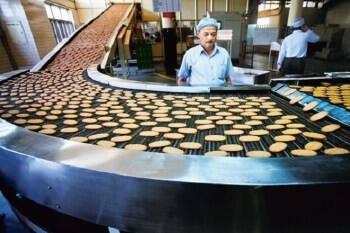
Chirag Paswan, a name that resonates in Indian politics, has recently made headlines by assuming the role of the 19th Minister of Food Processing. His journey to this significant position is a testament to his unique blend of perseverance, political acumen, and dedication to public service. This blog delves into Chirag Paswan’s political career, highlighting his unique qualities, contributions, and the potential impact he could make in his new ministerial role.
Early Life and Political Background
Born on October 31, 1982, in New Delhi, Chirag Paswan is the son of the late Ram Vilas Paswan, a veteran Indian politician and founder of the Lok Janshakti Party (LJP). Chirag’s educational background includes an engineering degree, which he pursued before entering politics. His father’s legacy heavily influenced his entry into politics, and he joined the LJP, working closely with his father to understand the intricacies of Indian politics.
Rise in Politics
Chirag Paswan’s political career began in earnest in 2014 when he contested the general elections from the Jamui constituency in Bihar. His campaign, which focused on youth empowerment, education, and development, resonated well with the electorate. Winning the seat marked his entry into the Indian Parliament, where he quickly established himself as a proactive and articulate Member of Parliament (MP), despite the challenges he faced.
As an MP, Chirag Paswan has been vocal about various issues, including social justice, economic development, and infrastructure improvement. His speeches and interventions in the Parliament have often highlighted the need for progressive policies to address the challenges faced by the youth and marginalized communities.
Leadership in Lok Janshakti Party
Following the demise of his father in October 2020, Chirag Paswan assumed the leadership of the LJP. His leadership faced significant challenges, including internal party dissent and political realignments. However, Chirag managed to steer the party through turbulent times, focusing on rebuilding its base and expanding its reach.
Under Chirag’s leadership, the LJP adopted a more assertive stance in Bihar’s political landscape. He spearheaded the party’s campaign in the 2020 Bihar Legislative Assembly elections, emphasizing a vision of a “New Bihar” with better infrastructure, education, and employment opportunities. Although the party faced setbacks, Chirag’s resolve to continue working towards his goals remained undeterred.
Becoming the Minister of Food Processing

In June 2024, Chirag Paswan was appointed Minister of Food Processing, a position that comes with significant responsibilities given India’s vast and diverse agricultural landscape. His appointment marks a pivotal moment in his political career, positioning him to influence policies that can transform India’s food processing sector.
Vision and Plans for the Food Processing Sector
As the Minister of Food Processing, Chirag Paswan is expected to bring fresh perspectives and innovative solutions. His vision for the sector is comprehensive and includes:
- Modernizing Infrastructure: One of Chirag’s primary goals is to modernize the food processing infrastructure across India. This involves upgrading existing facilities, encouraging the use of advanced technologies, and ensuring better supply chain management to reduce wastage and improve efficiency.
- Promoting MSMEs: Chirag plans to promote Micro, Small, and Medium Enterprises (MSMEs) within the food processing industry. He aims to create more employment opportunities and boost local economies by providing them with the necessary support and resources.
- Enhancing Export Potential: Another key area of focus is increasing India’s export potential in processed foods. Chirag intends to implement policies that enhance the quality and standards of processed food products, making them more competitive in international markets.
- Farmer-Centric Policies: Chirag prioritizes ensuring that farmers benefit from the growth of the food processing sector. He plans to introduce initiatives to help farmers get better prices for their produce, reduce post-harvest losses, and integrate them more effectively into the food processing value chain.
- Sustainable Practices: Chirag is also committed to promoting sustainable practices within the food processing industry. This includes encouraging the adoption of eco-friendly technologies, reducing carbon footprints, and minimizing the environmental impact of food processing activities.
Challenges and Opportunities
Chirag Paswan’s new role comes with its set of challenges. The food processing sector in India faces issues such as inadequate infrastructure, high wastage rates, and the need for better market linkages. Addressing these challenges requires comprehensive policies, practical implementation, and continuous monitoring.
However, these challenges also present opportunities for significant improvements. With India’s rich agricultural diversity and vast market potential, the food processing sector holds immense promise for transformative change. Chirag Paswan, with his vision and leadership, can drive substantial progress in this sector by leveraging modern technologies, fostering innovation, and ensuring inclusive development.
Conclusion
Chirag Paswan’s journey to becoming the 19th Minister of Food Processing is a significant milestone in his political career. His dynamic approach and a deep understanding of grassroots issues position him well to lead the sector towards a brighter future. As he steps into this crucial role, the expectations are not just high, but also filled with optimism for the potential of transformative change. Chirag Paswan’s tenure as the Minister of Food Processing will be closely watched as he works towards realizing his vision for a more robust, efficient, and farmer-friendly food processing industry in India.






